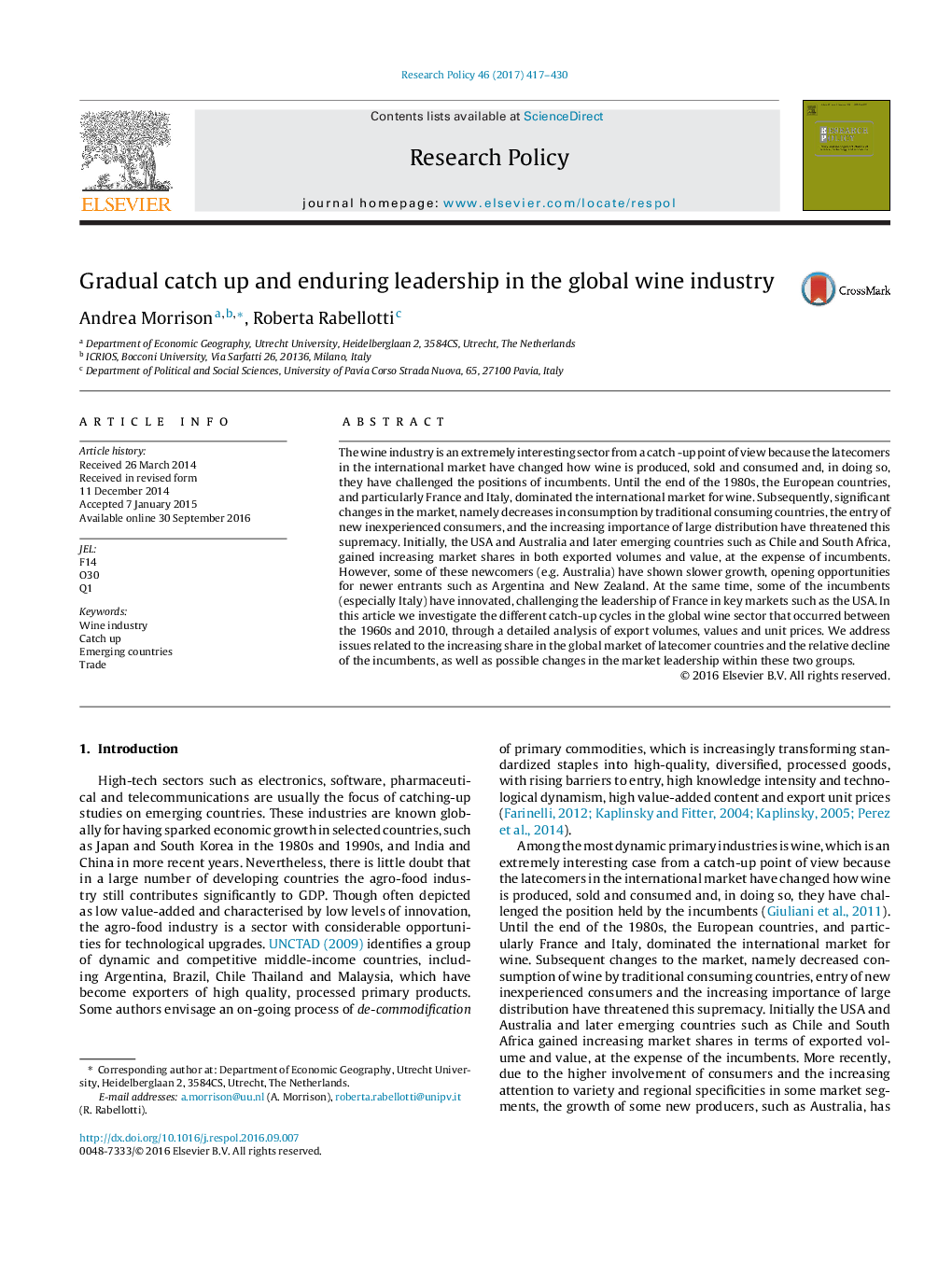| Article ID | Journal | Published Year | Pages | File Type |
|---|---|---|---|---|
| 5104033 | Research Policy | 2017 | 14 Pages |
â¢We investigate the different catch-up cycles in the global wine sector between 1960 and 2010.â¢Changes in demand opened the first window of opportunity for latecomers, who gradually caught up via path-creating strategies.â¢Incumbents maintained their leadership by aligning their wines to current demand patterns.â¢The entry of China in the wine market can open up a new catch-up cycle.
The wine industry is an extremely interesting sector from a catch -up point of view because the latecomers in the international market have changed how wine is produced, sold and consumed and, in doing so, they have challenged the positions of incumbents. Until the end of the 1980s, the European countries, and particularly France and Italy, dominated the international market for wine. Subsequently, significant changes in the market, namely decreases in consumption by traditional consuming countries, the entry of new inexperienced consumers, and the increasing importance of large distribution have threatened this supremacy. Initially, the USA and Australia and later emerging countries such as Chile and South Africa, gained increasing market shares in both exported volumes and value, at the expense of incumbents. However, some of these newcomers (e.g. Australia) have shown slower growth, opening opportunities for newer entrants such as Argentina and New Zealand. At the same time, some of the incumbents (especially Italy) have innovated, challenging the leadership of France in key markets such as the USA. In this article we investigate the different catch-up cycles in the global wine sector that occurred between the 1960s and 2010, through a detailed analysis of export volumes, values and unit prices. We address issues related to the increasing share in the global market of latecomer countries and the relative decline of the incumbents, as well as possible changes in the market leadership within these two groups.
